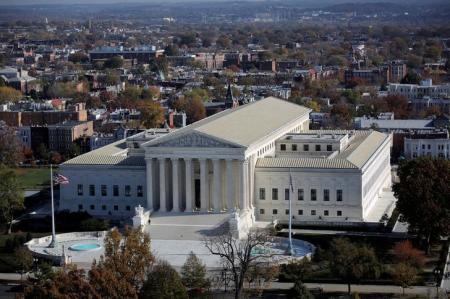Church petitions Supreme Court after denial of ministers' parsonage tax exemption

Religious liberty legal organizations petitioned the U.S. Supreme Court this week to reverse a Virginia court’s decision denying a parsonage exemption to unordained college ministers based on the city’s interpretation of Presbyterian doctrine.
The City of Fredericksburg denied a tax exemption for New Life in Christ Church’s parsonage housing for its college ministers, a married couple who serve students at the University of Mary Washington through hosting Bible studies and worship.
Parsonages are homes provided by a church for pastors or ministers. They are subject to the church's tax exemption status.
City officials deemed, however, that the couple does not quality as “ministers” even though they act in the capacity of ministers since they are not officially ordained, based on the city’s interpretation of the Presbyterian Book of Church Order.
The University of Mary Washington is a public university located about an hour's drive outside of Washington, D.C. and has around 4,400 undergraduate students.
Religious liberty legal firms First Liberty Institute, Christian Legal Society and Gibson, Dunn & Crutcher LLC filed the petition to the U.S. Supreme Court on Monday on behalf of New Life in Christ Church. The petition comes after the Virginia Supreme Court refused to review the city’s decision to deny the tax exemption for the parsonage.
Attorneys for New Life in Christ Church argue that the Supreme Court should review the judgment of the city's circuit court, calling the court's ruling in favor of the city an “erroneous application of federal law.”
“For over 150 years, the Court has confirmed that civil authorities may not second-guess religious organizations on ‘questions of discipline, or of faith, or ecclesiastical rule, custom, or law,’” the petition reads.
“It is a foundational premise of our constitutional system that religious organizations enjoy ‘power to decide for themselves, free from state interference, matters of church government as well as those of faith and doctrine."
Jeremy Dys, special counsel for litigation and communications at First Liberty Institute, told The Christian Post in an interview that the New Life in Christ Church is being denied the freedoms that come with being a church.
“On top of that, and I think this should scare most Americans even more, you have a city and a court unilaterally deciding on their own, evaluating religious doctrine and coming to the conclusion that these are in fact not ministers according to the Presbyterian tradition,” Dys said.
“Well, that’s just ludicrous that you would have government officials examine whether or not a church is following their own doctrine or questioning whether or not this church will call ministers."
Dys reiterated that state and elected officials should not determine what constitutes a minister since this infringes on the constitutional rights of a religious institution to decide.
“The state of Virginia and its elected officials have no business determining who is and who is not a minister for religious reasons,” Dys said. “If they can say these college ministers are not necessarily ministerial, then what is the limiting principle from saying any minister or rabbi or iman or other religious leader merits the protections that are offered to ministers or religious leaders in this country?”
“That’s the type of independence [in the] Constitution ... that the religious ministries get to determine who are their religious leaders who will teach their doctrine,” he continued.
Dys said the churches should ultimately decide what constitutes a minister, not elected officials.
“Government officials have no right to substitute their theology for that of the church,” Kelly Shackelford, CEO and chief counsel for First Liberty Institute, said in a statement.
“New Life in Christ Church considers its college campus ministers’ actions to be essential functions of the ministry of the church, and the city should abide by that decision."
Shackelford said the city’s interpretation of church doctrine on what constitutes a minister requires the government to “unnecessarily” violate the Constitution's First Amendment by delving into issues of faith and doctrine.
Kim Colby, director of the Christian Legal Society’s Center for Law and Religious Freedom, said in the petition that “New Life in Christ Church simply seeks the respect that the Constitution guarantees.”
In the Supreme Court appeal, the lawyers argued that the nation's high court has long "recognized" that "the Religion Clauses protect the right of churches and other religious institutions to decide matters ‘of faith and doctrine’ without government intrusion.”
They cited the 2020 Supreme Court case of Our Lady of Guadalupe Sch. v. Morrissey-Berru, where the court held 7-2 that a “ministerial exception” prevents civil courts from adjudicating discrimination claims brought by former employees against the religious schools.
The appeal also cites the Presbyterian Church in the U.S. v. Mary Elizabeth
Blue Hull Mem’l Presbyterian Church, a 1969 ruling stating that civil courts can't interpret church doctrine to decide church property disputes.
"While 'there are neutral principles of law, developed for use in all [civil] disputes, which can be applied without' running afoul of the Religion Clauses, 'First Amendment values are plainly jeopardized when church [civil] litigation is made to turn on the resolution by civil courts of controversies over religious doctrine and practice,'" the petition states.
Emily Wood is a reporter for The Christian Post. She can be reached at: emily.wood@christianpost.com





















